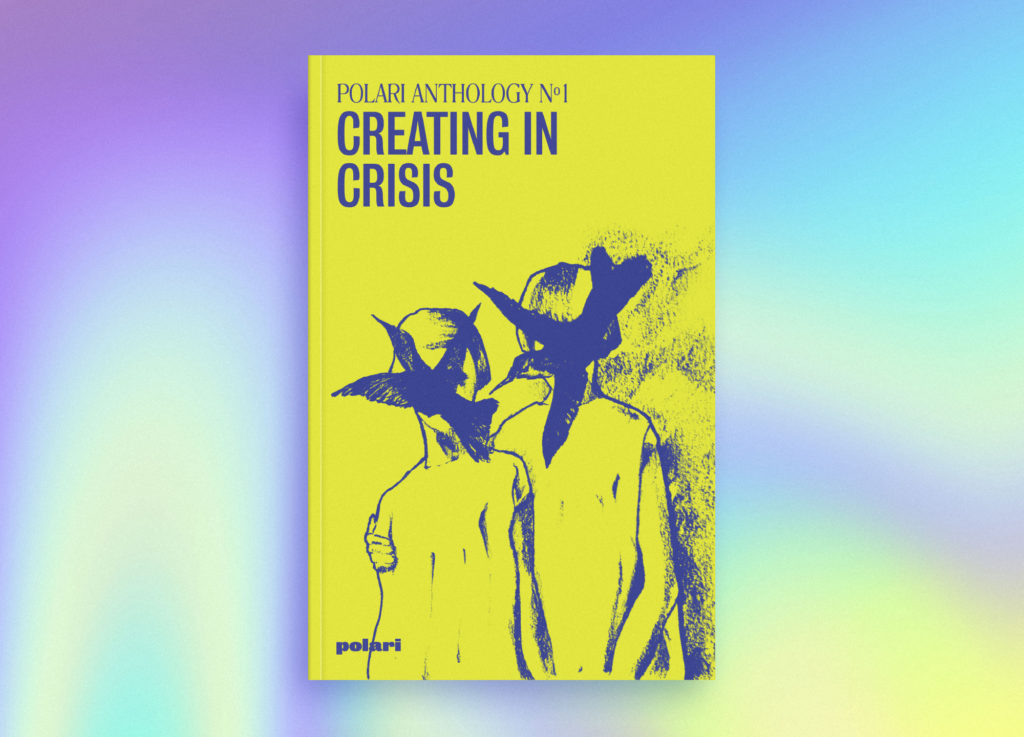Although set against a backdrop of Covid-19, this is not a lockdown anthology, but more a response to the fact that many people—especially those in minority and marginalised groups—face crises throughout their lives. People create because of, and in spite of, these challenges.
In providing an outlet for people to share their experiences, we hope our first anthology will be an opportunity for reflection and solace. In this article, Polari Press founder, Peter Collins, shares their personal thoughts on choosing this theme.
When coronavirus and lockdown swept across the world and across the UK, I—perhaps surprisingly—found myself coping. The processes I’d built around me to help me cope with my anxiety seemed to serve me well. If anything, there were more times where I could feel content. Still. Happy to press pause. The importance and urgency of trying to launch a business, set up a studio, build clients and do work seemed to fall away.
The changed world I found myself in felt more in line with where my mind was normally at. That imaginary threat level, which had always been mine alone, was now universal and real. The media started talking about issues I’d had to deal with for most of my life; now given importance because of the demographics of the people experiencing them. Discussing how to get through this time. How to navigate feeling scared of the outside, of shopping, of being alone, of being trapped inside. It felt like everyone had suddenly caught up with how I felt a lot of the time, but were as unprepared as I had been ten years ago when I first started trying to get on top of it. How much easier could this time have been on so many people if they’d listened to others who’d been through similar experiences preceding March 2020?

So many people already experienced adversities in their daily lives but were still expected to perform just as productively as everyone else. The ‘creating in crisis’ title of this first anthology is so much more than focusing on Covid-19. Black Lives Matter; the hostility towards trans people; the impact of a decade of austerity; the continuing refugee crisis. All these issues, and many more, have caused people to live through crisis on an ongoing and persistent basis. Never letting up. Never with the promise of a society working concertedly towards finding a resolution… heck, not even with the promise of the issue being acknowledged at all.
How do people manage to continue under these pressures? How does a Black person deal with knowing over 25,000 people complained to Ofcom about a dance routine? How did AIDS activists keep fighting in the face of sustained political inaction? How do people claiming for PIP tolerate repeated, inflexible appointments at unsuitable and inaccessible venues? How does a trans woman leave her home when she knows that using public facilities could be dangerous and her very existence is “up for debate”?
Well, it’s because… we have to.
And, for better or worse, we get used to it. The “new normal” now being discussed may have actually been a lot of people’s “normal” their whole lives.
Now that’s not to say I’ve found the last six months an easy ride. Illness, financial insecurity, isolation and grieving have all been in my life and the lives of people close to me. If anything, the easing of lockdown has been more difficult to navigate than the start. The chaos of conflicting messaging; the lack of consideration for Muslim communities during the local lockdowns on the evening of Eid celebrations; the lack of clarification over people who are shielding; BSL interpretation consistently not being shown on the UK government’s BBC One updates and face masks making lipreading impossible; asking students to start university before banning them from socialising, or even leaving their accommodation. With the ongoing nature of where we’re now at, it seems important to share our experiences and help each other prepare for the feelings we might not yet have felt.
So that’s the starting point for submissions for Anthology 1: Creating in Crisis. It feels a good time to share thoughts, methods, experiences, emotions and feelings. The times when things have gone well despite the struggle. Or when things have crashed and burned despite all best efforts. Stories of when you’ve stayed focused and positive; and to accept there’ll be times where you aren’t. And not just regarding Covid, but keeping in mind all the other struggles, traumas, crises we may live through regardless of a pandemic.